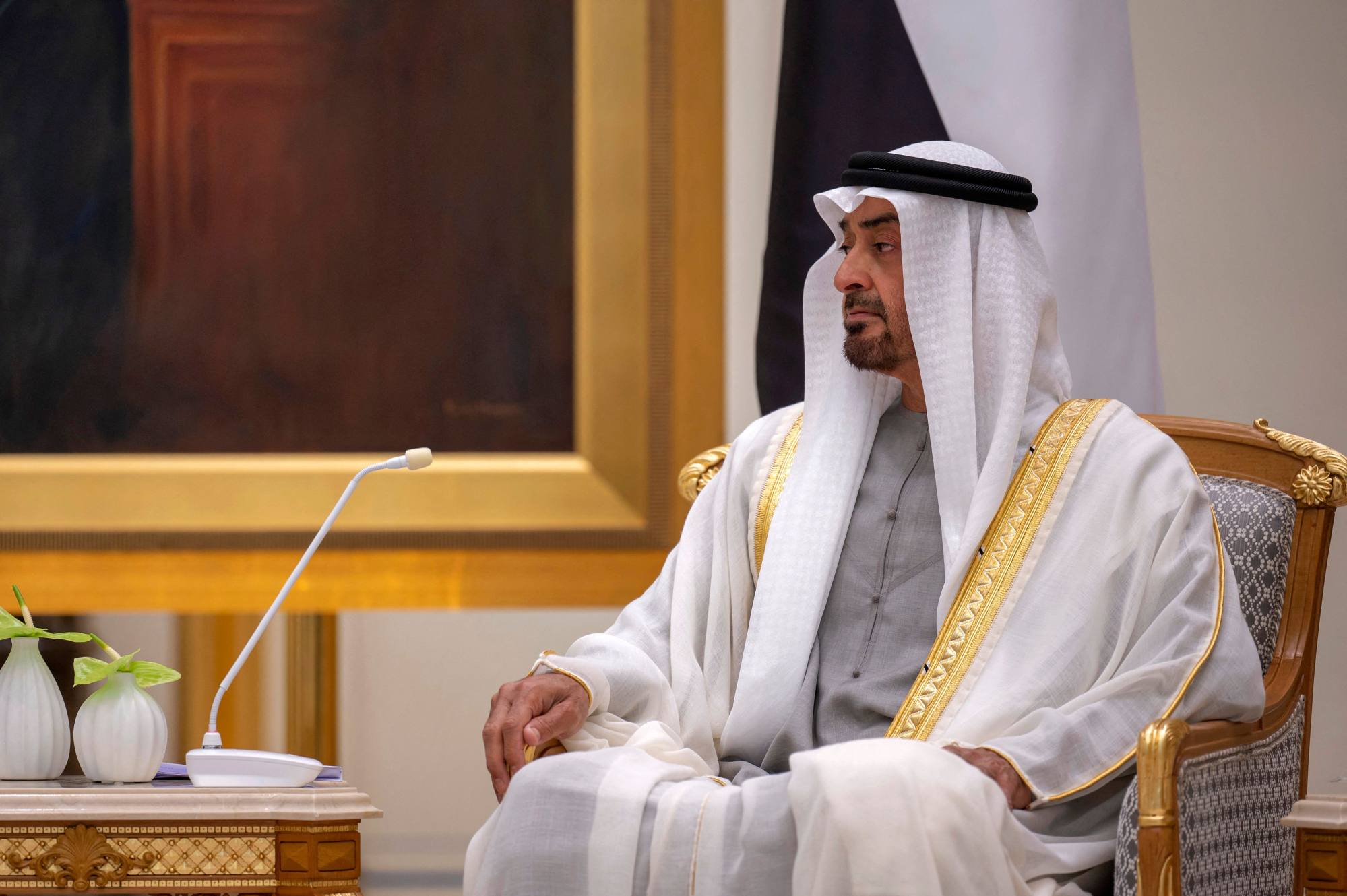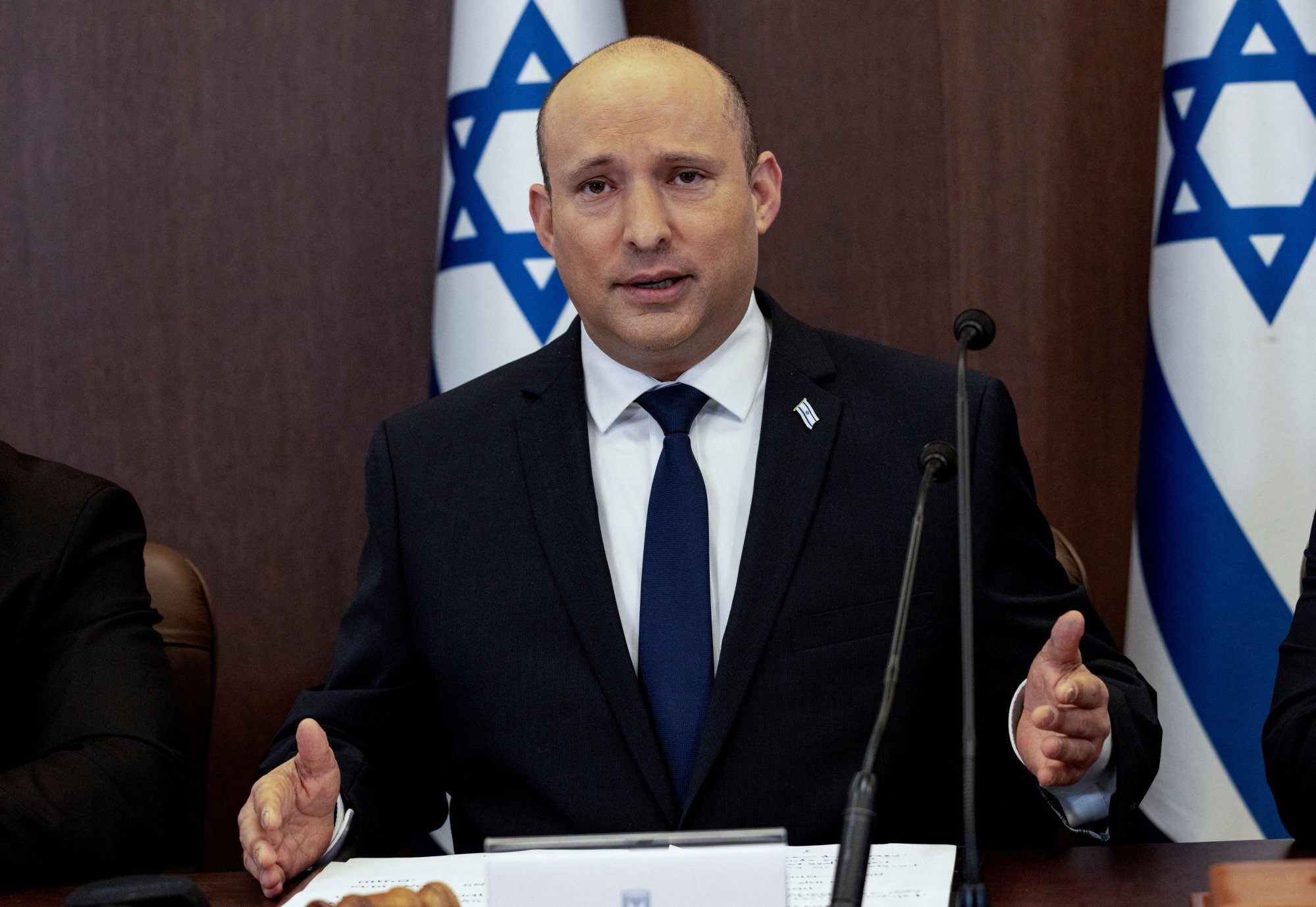
UAE crown prince meets Israeli president during landmark visit
- Crown Prince Mohammed bin Zayed welcomed Israeli President Isaac Herzog in the UAE capital Abu Dhabi. Herzog is the first Israeli head of state to visit the Gulf country
- In 2020, the UAE and Bahrain became the first Gulf countries to establish diplomatic relations with Israel through US-brokered pacts
The United Arab Emirates’ de facto ruler on Sunday discussed cooperation and regional issues with Israeli President Isaac Herzog, the first Israeli head of state to visit the Gulf country.
Sheikh Mohammed bin Zayed al Nahyan, crown prince of Abu Dhabi, welcomed Herzog in the UAE capital Abu Dhabi and hoped that his visit would contribute to advancing ties between the two countries, the Emirates’ official news agency WAM reported.
The two sides also reviewed prospects of “growing cooperation at all levels,” as well as regional and international issues of mutual concern, especially efforts to achieve peace, stability and development in the Middle East, the agency said.

In 2020, the UAE and Bahrain became the first Gulf countries to establish diplomatic relations with Israel through US-brokered pacts.
Until then, only two Arab states, neighbouring Egypt and Jordan, had maintained diplomatic relations with Israel.
Sheikh Mohammed said on Sunday that successive visits by Israeli officials to the UAE affirm relations are moving forward and that “there is a common and strong will to strengthen them.”
He also expressed confidence that the UAE and Israel could present to the whole region a “practical model to reap the fruits of peace,” WAM reported.
“Our region is one of those that has suffered the most from wars and conflicts. Through peace, we, in the UAE, Israel and the entire region, can direct resources and energies to serving our peoples and paving the way for a better tomorrow,” he said.
Herzog also hailed the symbolism of the visit.
“We are sending a message to entire region that there is an alternative of peace and living together, and that the sons and daughters of Abraham can reside and dwell together in peaceful coexistence for the benefit of humanity,” he said.
Earlier Sunday, Herzog and his wife Michal were welcomed upon arrival at the presidency airport in Abu Dhabi by UAE Foreign Minister Abdullah bin Zayed Al Nahyan.
Following a festive welcome, Herzog held a meeting with the UAE foreign minister, the Israeli presidential spokesman said.
During the two-day trip, Herzog also plans to open Israel’s National Day at Expo 2020 in Dubai, an economic hub of the UAE.

In addition, he will meet representatives of the Jewish community, a statement from his office said.
“I bring with me a blessing and a message of peace for the peoples of the entire region,” Herzog said before his departure.
En route to the UAE, his plane flew over Saudi Arabia, another Gulf country, Herzog’s office said.
The pilot told passengers over the tannoy: “We are now right over Saudi Arabia. We are making history! We shall soon fly over the capital city.”
Herzog, according to his office, entered the cockpit, looked out over the Saudi landscape, and said: “No doubt, this is truly a very moving moment.”
In December, Israeli Prime Minister Naftali Bennett became the first Israeli premier to officially visit the UAE.
Last year, the Emirates opened an embassy in the Israeli coastal city of Tel Aviv. The two countries have also established direct flights.
Economic considerations are seen as the main driver of the rapprochement, but the countries are also forming an alliance against Iran.
Arab states have long refused to establish ties with Israel, saying any normalisation must be contingent on a resolution of the Palestinian conflict.

